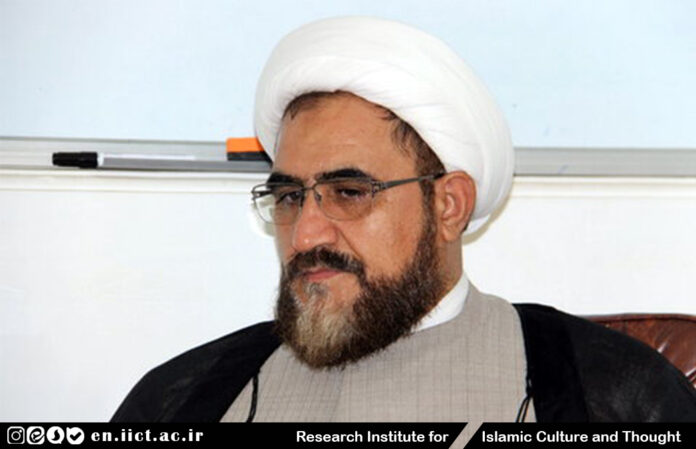In the social media, we’ve come to know that Jürgen Habermas, a distinguished German philosopher and a key figure of the Frankfurt School’s critical theory, along with being a legal scholar and professor of political science, has released a statement supporting Israel and categorizing Hamas as a terrorist entity. His statement underlines four critical points:
- “Hamas’s pre-emptive actions against Israel are deemed as acts of terrorism”.
- “The Israeli military’s response to these terrorist activities is fundamentally defensible”.
- “Classifying Israel’s military actions as genocide undermines the criteria for judgment”.
- “Israel’s military operations do not, in any way, justify the rise of anti-Semitic sentiments, particularly in Germany”.
Each intellectual holds both the privilege and duty to express their historical accountability towards the truths and realities of the world, grounded in their personal understanding and intellectual framework, and to position themselves based on principles of truth and justice. This expectation extends to Mr. Habermas, and we owe gratitude to him and all intellectuals who objectively analyse or critique major global events or the statements of others, free from political prejudice.
In this light, I wish to offer a reflection on Habermas’s statement. As someone familiar with Habermas’s political philosophy and his pronouncements, and considering my understanding of his intellectual approach and extensive experience, I propose several observations about his statement:
Firstly, Mr. Habermas, guided by his theory of discourse ethics, may have felt morally compelled to address the Holocaust, anti-Semitic sentiments, and Israel’s right to self-defence. In this context, it’s crucial for critical thinkers to examine if his stance aligns with his epistemological principles. If it does align, one might wonder why he has not similarly denounced other contemporary atrocities like the Balkan War and the Serbian genocide against Bosnia and Herzegovina, the Waco siege in Texas (1995), the chemical attacks in Halabja and Sardasht (1988) with chemicals allegedly from Germany, the Rohingya genocide in Myanmar (1917), the Rwandan genocide (1994), and the prolonged occupation and alleged genocides by Israel over seventy-five years, which Mr. Habermas has likely observed given his age and knowledge. Why has he not publicly condemned these incidents as a philosopher?
Here, drawing from Habermas’s critical rationality and the concept of communicative action, we question and critique his approach for potentially compromising the integrity of political philosophy by appearing to be swayed by Zionist politicians and their Western allies.
Secondly, one would expect a philosopher making such a statement to not only label Hamas’s actions in the October 7th, 2023, incident as terrorism but also to condemn the alleged genocide by Israel in Gaza. Even accepting the premise of Israel’s right to self-defence, true defence should target only those directly responsible for actions against Israel. Given Israel’s military capabilities and Western support, it seems disproportionate to target civilians, including thousands of children and women. This perspective seems to contradict even the Biblical and Quranic principle of “an eye for an eye, a tooth for a tooth,” advocating for proportionate retaliation.
Thirdly, we concur that Israel’s military actions do not justify anti-Semitic sentiments, especially in Germany. In Iran, for instance, there is no adverse stance towards Iranian Jews, and Jewish representatives have openly condemned the alleged genocide by Israel. This distinction between the actions of the Zionist regime and the Jewish faith is also recognized by Jews in America, Europe, and Germany. However, the statement could have also addressed the issue of Islamophobia and the widespread discrimination against Muslims in Europe, particularly in Germany.
Fourthly, while the statement categorizes Hamas’s pre-emptive actions against Israel as terrorist acts, one might question whether Habermas is prepared to similarly designate Israel’s actions over seventy-five years of occupation and numerous operations against an oppressed nation deprived of its land and rights. Such condemnation has not been observed from him yet.
Fifth, I bring attention to Imam Khomeini’s letter to the last leader of world socialism, Mikhail Gorbachev. Though Gorbachev did not heed the letter, which advised turning to spiritual truths and critiqued materialism and communism, it remains a significant piece of political and philosophical discourse.
Lastly, I wish to remind Mr. Habermas that freedom and liberty are central to reason and philosophy. History shows that human life is deeply intertwined with political and philosophical theories. Unfortunately, in recent times, philosophers have sometimes appeared to support the actions of leaders like George Bush in Afghanistan and Iraq, among other conflicts. We hope that Mr. Habermas does not tarnish his reputation by appearing to support what are perceived as severe transgressions by Israel in Gaza.
Mohsen Mohajernia
November 16th, 2023




